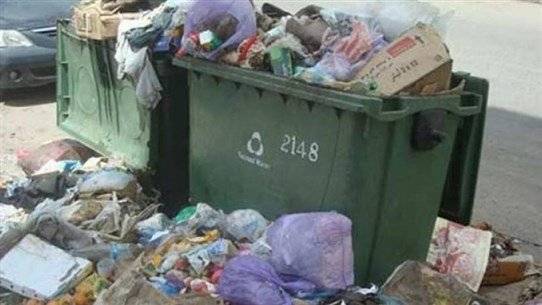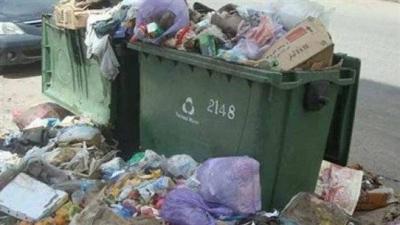The economic crisis has heavily impacted Ashura, with very few food-serving tents celebrating the love for Hussein surviving. Instead, falafel carts have emerged, trapping citizens, as a small plate of falafel now costs 35,000 LBP, while a larger plate exceeds 50,000 LBP, transforming the profession of "falafel vendor" into a temporary job opportunity that can yield a lot of money. Children gather around the falafel cart, hands racing to grab a plate of falafel and corn, making the scene resemble a race towards salvation. Abu Ali, the vendor, quickly prepares plates as if paying off burning subscription bills that have exceeded reason and logic, surpassing 5 million LBP. He sprinkles cumin and salt onto the falafel like someone adding artificial flavors to life, providing an extra dose of patience. Only the foul smell of waste disrupts the scene; thick smoke has covered the villages of Nabatieh due to a fire at one of the "commercial" dumps in Kfour. This has ignited a debate about who burns the dumps and who benefits from it. Has the trade in waste reemerged as most municipalities struggle to collect it?
The view of burning waste in Kfour appeared harsh, with white smoke and toxic odors engulfing the villages, yet no one has taken action. For more than two days, the dump has been burning, and the cries of the people have not reached those responsible. The blazing dump is under the control of “crisis traders” who smuggle the waste in collusion with several municipalities, all of which is done "within their rights." Today, waste is smuggled by the kilogram, and the cost of lifting it from the town reaches 65 million LBP monthly. Meanwhile, waste traders negotiate deals with owners of these dumps, generally under municipal oversight, in exchange for a certain percentage. Thus, the waste crisis continues to worsen without deterrence.
The sorting factory seems to have entered a stage of rust. "No one wants to resolve the crisis as long as it remains profitable," according to a high-ranking source, asserting that the crisis is in the hands of the parties and "they don’t want to solve it." As he puts it, "Who would abandon a gold mine? If the factory operates, the profit becomes solely for one side, hence the disruption is paramount." The fire at the Kfour waste dump has brought the waste crisis and party rivalries back to the forefront, alongside a resurfacing of the waste trade that has become "open." The burning waste is "smuggled," and the fire, according to sources, "conceals the crime and allows for more smuggling." But what about the environmental and health damage? What about the health of the people who have started complaining about asthma and allergies, along with rising cancer rates among them? There are no answers.
The foul smells of toxic waste have not prompted the relevant authorities to act despite the continuous cries from the residents, nor did it push municipalities to extinguish the flames, as the fire is their last concern. Even when a number of young volunteers from Hbous mobilized to demand its extinguishment to stop the leak of toxic materials, their efforts bore no results. Their appeal to the Minister of Environment for intervention went unheard, leading them to undertake the task of burying the burning dump themselves. But who will guarantee it won’t ignite again? Imad says, "No one. It ignites every so often, or whenever it fills up, it burns on purpose, and we’re suffering for it, as long as there is no oversight authority or effective municipality."
Only the residents of Hbous acted; they buried the dump with soil to quench its flames. As Abbas states, "Our lives are in danger; the toxic odors are causing us allergies and diseases, and no one cares." According to Ali, "What is happening in Kfour Valley is an extremely dangerous environmental massacre; its repercussions will affect public health." Ali understands that the dump contains smuggled waste due to "garbage deals," noting that municipal heads are profiting from this trade while "we, the people, are dying from its toxins." Meanwhile, Qassem, who participated in the burying of the dump, points out that the fire is intentional because the traders deliberately burn it to allow for dumping even more waste.
In the Nabatieh area, there is more than one dump where waste is smuggled, via deals made between influential figures and waste traders, who usually agree on a “deal” with municipalities incapable of managing their crisis at four times the price, resulting in a monthly waste collection cost exceeding 65 million LBP. Over the years, the waste has not undergone treatment, entangled in disputes over who manages the sorting factory and who controls the collection company, during which the solution has disappeared and villages are flooded with waste. Everyone is aware of the municipalities' inability to manage this crisis; even the union itself has distanced itself from the file as if it does not concern them, despite having a significant hand in it. According to information, they have shirked their responsibilities and left them to the parties, where both parties, the party and the movement, compete over the crisis, from which waste traders usually benefit the most.
More than three years have passed since the annulment of the waste collection contract by the municipal union, and still, no new agreement has been reached due to a "currency discrepancy." Even parties have not conceded to address the crisis, which fluctuates in intensity. According to informed sources, "They don't want to resolve it this way; it’s more profitable." More assertively, they state, "There is no decision for resolution, and there is collusion with municipal heads in this file, specifically municipalities that open their dumps to waste traders in exchange for high financial fees." The scent of corruption wafts through the waste file, as no party is willing to resolve it while waste remains a profitable asset. The question is, what is the role of the Ministry of Environment in finding a solution to this issue?




